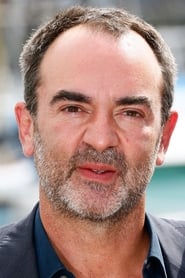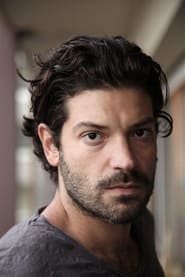
Ask Your Own Question
What is the plot?
Louise, under mounting pressure from Clément, makes the decision to sell the hotel that has been her lifelong home and the center of her identity. She attempts to maintain appearances, but the emotional weight of the sale is evident as she processes the reality that she is no longer the director of the hotel.
Louise meets Sofia at La Peña Loca for coffee. Visibly shaken, Louise confesses that she cannot believe the hotel no longer belongs to her. She explains to Sofia that the hotel represents her entire life, having been born there. Sofia, confused and concerned, questions why Louise would sell, especially to Clément. Louise does not provide a clear answer, leaving Sofia to sense her friend's turmoil.
Gabriel, Louise's son, interrupts their conversation, demanding an explanation from his mother. Louise, with a mix of resignation and defensiveness, tells Gabriel that the hotel was on the verge of collapse due to Lucien's mismanagement. Gabriel, however, cannot understand why she would choose Clément, her ex-husband, as the buyer. His frustration is palpable as he presses Louise for a reason, but she remains evasive, her face betraying a mix of guilt and exhaustion.
Later, Gabriel confronts Clément directly. He accuses his father of stealing the hotel and firing his mother. Clément, calm and calculated, offers Gabriel the position of assistant manager, suggesting they work together to run the hotel. Gabriel, recalling years of Clément's abusive behavior toward Louise, refuses outright. His rejection is firm and emotionally charged, making it clear he will not collaborate with the man who hurt his mother.
Meanwhile, Etienne approaches Théa, warning her that the change in management puts their jobs at risk. He advises her to be cautious around Clément, hinting at his untrustworthiness. Théa, suspicious, wonders aloud if Clément forced Louise into selling the hotel. The tension among the staff is evident as they speculate about their futures under the new ownership.
Tarek visits Audrey and Franck, delivering the news that Louise has sold the hotel to Clément. Both are visibly shocked. Franck, still harboring resentment toward Louise for past actions, finds it difficult to sympathize with her situation. The conversation is tense, with Franck's bitterness contrasting with Audrey's more measured reaction.
The episode ends with the characters each grappling with the consequences of Louise's decision. The hotel, once a stable foundation in their lives, is now a source of uncertainty and conflict, its future--and theirs--hanging in the balance.
Related Titles
Browse All Titles →What is the ending?
Gabriel confronts his mother in a tense, emotional scene, finally uncovering the truth about her recent behavior. Meanwhile, Marin, overwhelmed by pressure in the kitchen, makes a series of mistakes in front of Chef Philippe Etchebest, but manages to salvage his dignity by owning up to his errors and showing humility.
The episode ends with two parallel storylines converging in their emotional intensity. The first scene takes place in Gabriel's childhood home, where he has returned after days of suspicion and worry about his mother's increasingly withdrawn and erratic behavior. The house is dimly lit, shadows stretching across the living room as Gabriel stands in the doorway, his face tense with apprehension. His mother sits at the kitchen table, her hands wrapped around a cold cup of tea, her eyes avoiding his. Gabriel speaks softly at first, asking direct questions about what's been happening--why she's been missing calls, why she's been acting so distant. She hesitates, then finally breaks down, confessing that she's been struggling with depression since the death of her sister, something she's kept hidden out of shame and fear of burdening her son. Gabriel listens, his expression shifting from frustration to sorrow. He reaches across the table and takes her hand, promising to help her seek treatment and to be there for her. The scene closes with them embracing, a quiet moment of reconciliation and vulnerability.
Meanwhile, at the restaurant, Marin is in the middle of a high-pressure service, working directly under the watchful eye of Chef Philippe Etchebest. The kitchen is loud and chaotic, with flames leaping from pans and orders flying. Marin, already nervous, drops a plate, then misreads a ticket, sending out the wrong dish. Chef Etchebest, known for his exacting standards, approaches Marin with a stern expression. Marin, visibly shaken, tries to explain, but stumbles over his words. Instead of making excuses, he stops, takes a breath, and admits his mistakes openly, apologizing for the errors and offering to correct them immediately. Chef Etchebest watches him for a long moment, then nods curtly, telling Marin to focus and do better. Marin returns to his station, his hands steadier now, and completes the service without further incident. At the end of the shift, Chef Etchebest gives him a brief word of encouragement, acknowledging his honesty and willingness to learn.
By the episode's close, Gabriel and his mother are sitting together on the couch, talking quietly, the weight of their shared grief beginning to lift. Marin, back in his apartment, sits alone at his kitchen table, staring at a notebook filled with recipes and notes, a small smile on his face as he reflects on the day's lessons. Both storylines end with a sense of cautious hope--Gabriel and his mother have begun to heal, and Marin has taken a step forward in his personal and professional growth.
Is there a post-credit scene?
There is no postcredit scene in Nouveau Jour, Season 1, Episode 52, which aired on September 9, 2025. The episode concludes with the resolution of Gabriel's storyline as he confronts the emotional turmoil surrounding his mother's situation, culminating in a tense and revealing conversation with chef Philippe Etchebest. The final moments focus on Gabriel's internal struggle and the lingering uncertainty about his family, but the credits roll immediately after the last scene without any additional footage, dialogue, or narrative tease. No hidden scenes, character cameos, or promotional material appear after the credits.
What motivates Louise to sell the hotel in Episode 52 of Nouveau Jour Season 1?
Louise sells the hotel under pressure from Clément because the hotel was on the verge of collapse due to Lucien's poor management. Despite her emotional attachment to the hotel, which she was born into and represents her whole life, she chooses to sell it to Clément to save it from financial ruin.
How does Gabriel react to his mother Louise selling the hotel to Clément?
Gabriel is upset and confused about why Louise sold the hotel to Clément, his mother's ex-husband. He confronts his mother for explanations and later reproaches Clément for having taken the hotel and firing Louise. Gabriel refuses to work under Clément, especially because Clément had been abusive to Louise in the past.
What is Clément's role after the hotel changes ownership in Episode 52?
After the hotel is sold to Clément, he offers Gabriel the position of deputy director of the estate. However, Gabriel declines the offer due to his resentment towards Clément for past abuse against his mother.
What concerns do Étienne and Théa have regarding the new management of the hotel?
Étienne warns Théa that with Clément's takeover, there is a risk they might lose their jobs. Théa suspects that Clément may have pressured Louise into selling the hotel, raising concerns about the circumstances of the sale.
How do other family members and friends react to Louise selling the hotel to Clément?
Tarek informs Audrey and Franck about Louise selling the hotel to Clément, and they are shocked. Franck struggles to sympathize with Louise given past conflicts, indicating tension and disbelief among family and friends about the sale.
Is this family friendly?
There is no detailed information available in the provided search results about the specific content of "Nouveau Jour," Season 1, Episode 52, produced in 2025. The available sources only confirm the show's genre (drama/romance), main cast, and general production details, but do not provide episode-by-episode summaries, content warnings, or descriptions of potentially objectionable material for any specific episode, including Episode 52.
Given the show's genre and the absence of explicit content notes, it is reasonable to assume that "Nouveau Jour" is generally family-friendly in the sense that it does not contain graphic violence, explicit sexual content, or strong language typical of adult-oriented dramas. However, as a dramatic series, it may include emotionally intense scenes, interpersonal conflicts, and themes such as relationship struggles, personal crises, or social issues, which could be upsetting or confusing for very young children or sensitive viewers. Without access to the actual episode or a detailed synopsis, it is not possible to list specific scenes, visual details, or character motivations for Episode 52.
If you require a detailed, scene-by-scene summary with emotional and visual specifics, you would need access to the episode itself or an official, detailed episode guide, which is not present in the current search results. For now, the best guidance is that "Nouveau Jour" is a French drama/romance series likely suitable for older children and adults, but parents of young or sensitive viewers should preview episodes or seek more detailed content advisories as they become available.


























